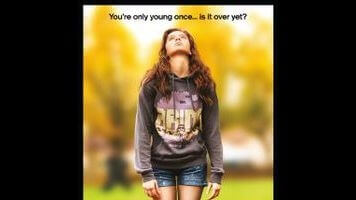For a smart, funny teen movie, go to The Edge Of Seventeen

In the race to set up franchises all over town, there are certain human-scale subgenres—probably not coincidentally, genres that often attract a female target audience—that have become neglected or in some cases consolidated. Romantic comedies and teen movies, for example, have more or less been combined into romantic dramedies adapted from young-adult novels (or the occasional YA romance with elaborate fantasy-world rules). Less swoony coming-of-age movies still turn up, but more often as grittier kitchen-sink indies.
All of these shifts make Kelly Fremon Craig’s The Edge Of Seventeen especially worthwhile. Despite its upstart distributor and relatively low-key cast, it’s an unabashedly mainstream movie; compared with edgier, more indie versions of onscreen American youth, it might even look a little pat. But in following a few bad weeks in the life of Nadine (Hailee Steinfeld), it reclaims smart sensitivity in teen movies—emotional territory that sometimes feels like it’s been ceded to the occasional TV show.
The movie starts great then hits a rough patch in quick succession, opening on a striking series of shots that follow Steinfeld from a car into her high school and through the halls until she arrives at the desk of history teacher Mr. Bruner (Woody Harrelson), where she blithely announces her intention to kill herself. At this point, the movie flashes to backstory narrated by Nadine (but to the audience, not her teacher) that relies on verbal clichés like explaining how there are “two types of people in this world.” Tellingly, the voice-over disappears after Nadine explains the origin of her long friendship with Krista (played in the present by Haley Lu Richardson) and the untimely death of her father. It feels very much like Craig wanted to make sure all of this information was conveyed upfront but understood that a running commentary would be too much.
If this was the case, she was probably right; once it dispenses its exposition, The Edge Of Seventeen relaxes into Nadine’s character—sort of an ironic move, considering how wound-up she is. Steinfeld recently appeared to be teeing up a sparkly pop-star career, but she’s wonderfully irritable here as she simmers and seethes about her outcast status. Her performance and Craig’s writing both highlight the self-loathing barely obscured by Nadine’s cutting remarks—a quality lots of teen movies shunt off to more bullying characters, if they address it at all. Steinfeld also nails the particularly adolescent quality of those cutting remarks: sometimes funny, often deeply self-conscious and performative. (Read The A.V. Club’s interview with her here.)
The nominal reason for Nadine’s distress is a hook-up between her golden-boy older brother, Darian (Blake Jenner from Everybody Wants Some), and Krista. But the confrontation isn’t immediate, and Craig has a keen sense of how to pace through Nadine’s discomfort. When she first discovers Krista in bed with Darian, there’s a scene-interrupting cut to the two girls sitting together in uncomfortable silence on the curb in front of Nadine’s house. Later, a house-party scene quickly and painfully illustrates the social shifts this possible relationship represents for its sort-of third wheel.
The rift in her only real friendship sends Nadine bouncing off the other people in her life. She mouths off to her mother (Kyra Sedgwick); she toys with Erwin (Hayden Szeto), a boy from her history class whose adoration for her is obscured only by his charming awkwardness; and she pushes the limits of cordial teacher-student conversation with Mr. Bruner. Harrelson’s underplaying of, say, his reference to Nadine as an “especially badly dressed” student is invaluable, as is the inevitable warmth he reveals underneath the snark. All of these supporting characters are well-drawn, save perhaps Nadine’s crush object, Nick (Alexander Calvert), who is so transparently lame that it’s hard to understand her mistaking him for mysterious, however fleeting that projection is. He also stands out because he’s the only bad person in the movie; otherwise, Craig sees her characters clearly without judging them.
Despite the presence of smartphones and a clear fall 2015 setting, Craig’s frame of reference seems to be earlier, with odd cultural touchstones like Twins or Aimee Mann’s “Save Me” (which really should be off-limits for repurposing after Magnolia). Nadine eventually chalks this up to being an “old soul,” and if that seems like a fudge for a filmmaker who might have just wanted to talk about the stuff she knows (and to make older audiences, like say thirtysomething film critics, feel more comfortable in the process), the decision to fully acknowledge but not obsess over social media lends Edge Of Seventeen a certain timelessness. If it’s a little easy (easy to like but also easy to resolve), well, sometimes teenagers deserve a little affecting ease. Adults do, too.